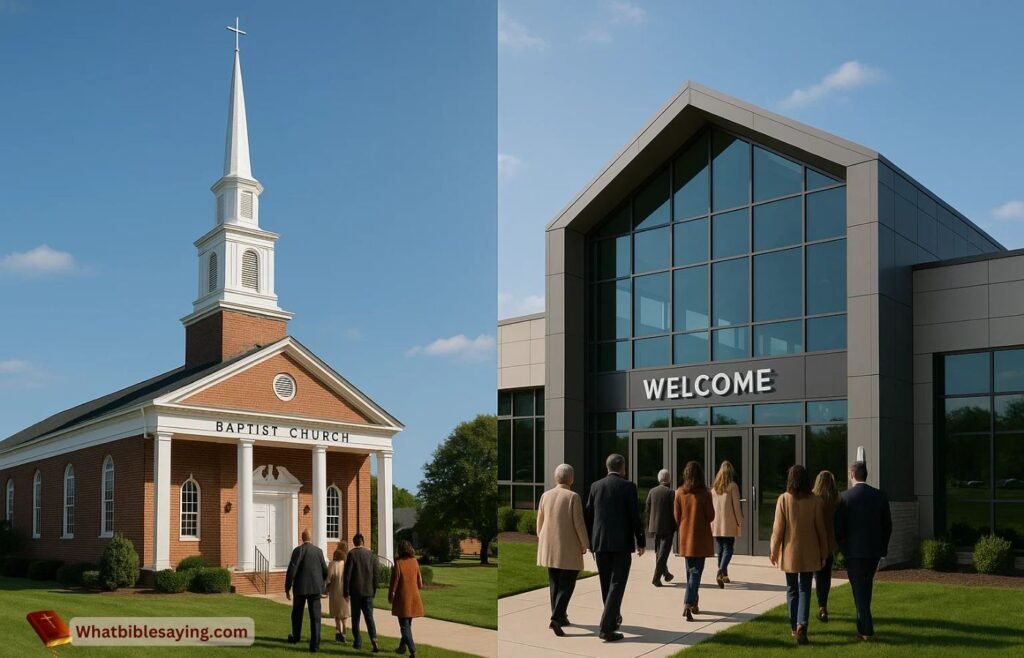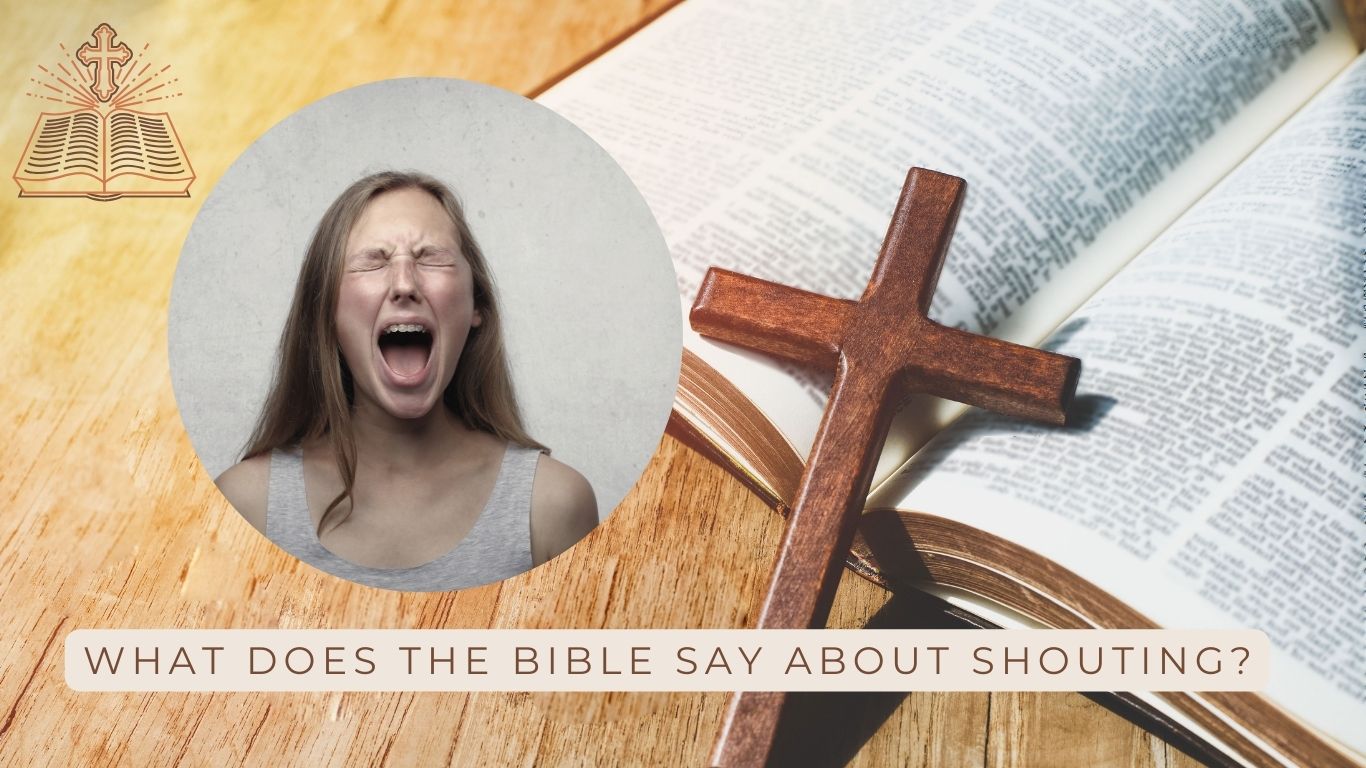 Why It Matters What You Believe
Why It Matters What You Believe
The first time I visited a non-denominational church after growing up Baptist, the biggest shock was the coffee. People were sipping lattes in the sanctuary. For a kid raised on grape juice in tiny plastic cups, it felt like a different world. It’s a small thing, but it highlights a question many of us stumble upon: what’s really the difference between these churches.
It’s a question many Christians ask when visiting a new church, joining a Bible study, or simply exploring their faith more deeply. While both types of churches affirm the Bible as God’s Word and follow Jesus Christ as Lord, their differences lie in structure, history, beliefs, and culture.
To really get to the heart of it, we have to look at more than just the worship style. We need to rewind a bit and understand where these two paths diverged. Whether you’re exploring your first church home or seeking to understand your neighbors in Christ better this guide is for you.
Shared Ground, Different Paths
Before we dig into the differences, let’s acknowledge this: Both Baptists and non-denominational Christians believe in the Bible, salvation through Jesus Christ, and the call to live a godly life.
But how they interpret, organize, and express those beliefs can look quite different.
| Feature | Baptist | Non-Denominational |
|---|---|---|
| Origin | Early 1600s (Separatists from Church of England) | 20th century USA (independent movements) |
| Church Governance | Congregational, sometimes association-based | Fully autonomous; no official body |
| Denominational Affiliation | Yes (e.g., Southern Baptist Convention) | No denominational label |
| Baptism Beliefs | Believer’s baptism by immersion only | Usually similar, but varies |
| Doctrinal Unity | Generally follows Baptist confessions | More varied from church to church |
| Worship Style | Traditional to contemporary | Mostly contemporary and casual |
The Baptist Tradition – Rooted in History and Scripture
The Baptist movement began in the early 17th century as part of the larger Protestant Reformation. English Separatists, discontent with state church practices, sought to return to biblical roots especially when it came to baptism and church governance.
The Pillars of the Baptist Faith
Believer’s Baptism: Only those who consciously profess faith in Christ should be baptized not infants.
Biblical Authority: The Bible is the sole authority for faith and practice.
Local Church Autonomy: Every congregation is self-governing but may voluntarily associate with others.
Religious Freedom: Early Baptists were among the first to champion separation of church and state.
Evangelism and Missions: Most Baptist churches actively support missionary work.
Subgroups and Diversity Within Baptists
You may hear terms like:
Southern Baptist
American Baptist
Independent Baptist
Reformed Baptist
Each group holds to Baptist distinctives but may differ in theology, worship style, or how they engage with culture.
Non-Denominational Churches: Breaking Free From Labels
Unlike Baptists, non-denominational churches don’t align with any particular group or historical denomination. Most emerged in the 20th century, often in response to the increasing bureaucracy, formality, or theological drift of established denominations.
What Do Non-Denominational Christians Believe?
Here’s where it gets nuanced.
Because non-denominational churches are independent, their beliefs can vary greatly. However, common themes include:
Christ-centered teaching
Scripture-focused sermons
Emphasis on relationship over religion
Contemporary worship style
Local community outreach
They tend to avoid creeds or long doctrinal statements, preferring to say, “We just follow the Bible.”
“You’ll often hear a phrase in non-denominational circles that gets right to their core ethos: ‘We’re not about tradition; we’re about Jesus.’ It’s a powerful statement that captures their desire to cut through centuries of ritual.”
Where the Paths Diverge
Now let’s zoom in on some key theological and philosophical contrasts.
1. Authority and Tradition
Baptists often have a historical confession of faith (like the 1689 London Baptist Confession) and align with theological traditions.
Non-denominational churches typically avoid formal theological documents, relying instead on pastoral interpretation of Scripture.
2. Baptism and Communion
Both practice believer’s baptism, but Baptists are strict about immersion.
Non-denominational churches may vary some accept previous baptisms from other traditions.
Communion practices vary widely among non-denominationals; Baptists often celebrate it monthly or quarterly.
3. Church Leadership and Governance
Baptists may vote on decisions during congregational meetings.
Non-denominational churches often operate with a board of elders or senior pastor leadership, sometimes with less congregational involvement.
4. Denominational Accountability
Baptist churches often relate to a denomination for support, missions, or doctrinal guidance.
Non-denominational churches are fully independent which can be a strength (freedom) or a weakness (lack of oversight).
Finding Your Fit: What Draws People In?
Common Reasons People Choose Baptist Churches:
Doctrinal clarity
Rooted tradition
Sense of identity within a larger group
Missionary focus
Common Reasons People Choose Non-Denominational Churches:
Less institutional feel
More modern worship
Flexibility
Desire to avoid labels
Many of us find that the church that nurtured our childhood faith isn’t always the one that challenges our adult faith. It’s why you see so many people move between these worlds, seeking either the deep roots of tradition or the fresh air of modern expression.
Let’s Bust a Few Myths
Let’s clear up a few common misconceptions:
“Non-denominational means anything goes.”
Not true. Many of these churches are deeply committed to Scripture. But their beliefs vary more from church to church.“Baptist churches are old-fashioned and strict.”
Some are. But many are now modern, diverse, and welcoming while still maintaining strong doctrine.“Non-denominational is not a denomination.”
Technically true, but many scholars observe that non-denominational churches have become a movement with common features.
What Does the Bible Say About Denominations?
The Bible doesn’t use the word “denomination,” but it does emphasize unity in Christ and truth in teaching.
“There is one body and one Spirit… one Lord, one faith, one baptism.”
Ephesians 4:4-5
Paul also warns against divisions:
“I appeal to you… that all of you agree… and that there be no divisions among you.”
1 Corinthians 1:10
This doesn’t mean churches must all look the same but rather, that our identity in Christ should be more powerful than our church label.
Which Is Right for You?
Rather than choosing based on a label, consider these questions:
Does the church faithfully teach the Bible?
Is Jesus at the center?
Does the leadership practice humility, transparency, and accountability?
Do they help you grow spiritually?
If you’re deciding between a Baptist and non-denominational church, you might visit both, ask questions, and pray for discernment.
Historical Reflection: Unity Amid Diversity
In the early church, believers gathered in homes and formed spiritual communities. As the centuries passed, differences in doctrine, culture, and geography gave rise to various traditions. Yet, the core message remained:
Jesus Christ crucified, risen, and Lord of all.
Whether you attend a small-town Baptist church or a modern non-denominational megachurch, if Jesus is at the center, you are part of His body.
Grace Over Labels
In the end, whether the sign says ‘Baptist’ or nothing at all, the real test is what happens when we walk out the doors. Are we kinder? More compassionate? Do we love our neighbors better? The best theology in the world is useless if it doesn’t change us. Perhaps the most important question isn’t what our church believes, but who it’s helping us become.













